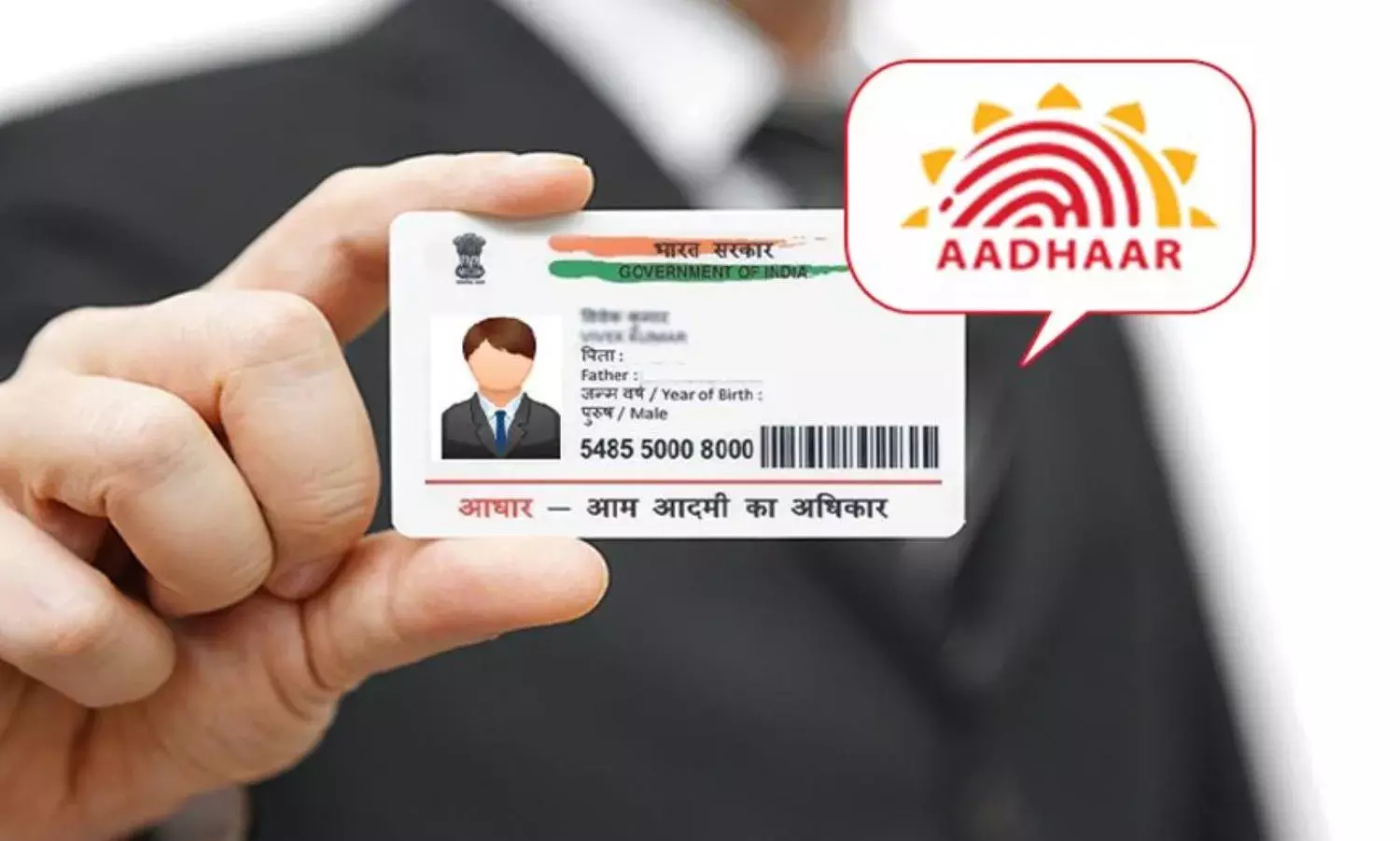SC Aadhaar Verdict: Constitutionally Valid but Clips its Wings
No need to link Aadhaar with Bank Accounts

NEW DELHI: The Supreme Court today delivered its judgment on petitions challenging the constitutional validity of the Aadhaar (Targeted Delivery of Financial and Other Subsidies, Benefits and Services) Act, 2016.
A five-judge constitution bench upheld the validity of the Aadhaar Act by a 4:1 majority. Justice A.K. Sikri authored a judgment on behalf of himself, Chief Justice Dipak Misra and Justice A.M. Khanwilkar. Justice Ashok Bhushan pronounced a separate judgment. Justice D.Y. Chandrachud's views dissented from the majority.
The judgment upholding the validity of Aadhaar states nonetheless that “Nobody shall be denied entitlements or disqualified from the benefit of schemes for the absence of an Aadhaar number.”
The court struck down Section 57 of the Aadhaar Act which allowed private entities to use Aadhaar for verification purposes. Therefore, any corporate body or any private person cannot seek Aadhaar from applicants. Section 33(2) of the Act, which allowed the Unique Identification Authority of India to share data with specially authorised officers in the interest of national security, has also been struck down.
Justice Sikri in his judgment said the Aadhaar Act, being a money bill, covers benefits drawn from the Consolidated Fund of India (CFI). This means that the central or state governments while drawing on the CFI for any subsidy could require individuals to furnish proof of possession of an Aadhaar number or to undergo authentication. It could make it mandatory to link Aadhaar numbers to publicly subsidised welfare services such as PDS rations.
For marginalised groups access to Aadhaar has become vital. There have been several instances where failures in Aadhaar card delivery, biometrics or authentication have denied citizens access to welfare.
One such tragic incident was an 11 year old’s death in Jharkhand in September last year. Right to Food campaigners said the girl died of starvation after her family’s ration card was cancelled because it had not been linked to their Aadhaar number. (For details, see No Aadhaar No Food and Interactive Map Illustrates The Denial Of Welfare For Those Without Aadhaar.)
The Citizen spoke to Sudhir Vombatkere, one of the petitioners in the case. He said, “This judgment is a balancing act. The majority judgments have upheld the government’s view and made certain stipulations. The implementation of the Aadhaar Act is going to be crucial. It is a 1000-page judgment which has to be read and re-read and be interpreted in different ways. Misinterpretation of the judgment will also follow.”
For instance, he said, “The judgment mentions that Aadhaar metadata cannot be stored for more than six months. The question arises, Who is going to monitor the data, and whether it has been deleted or is being stored with or without consent? What are the mechanisms related to the implementation of effective storage and monitoring of data? There is also confusion around linking of Permanent Account Number (PAN) of the Income Tax Department with Aadhaar. Hopefully, the detailed print judgement would be able to clarify several doubts.”
He added that for the judgment to say that “exclusion of 0.232% of the population should be seen as inclusion of 99.768 % of the population” is “a very dodgy issue.”
It is Justice Sikri’s judgment which states that Aadhaar “fails only 0.232%” of the population. “Aadhaar gives dignity to the marginalised. Dignity to the marginalised outweighs privacy,” his judgment reads, adding that dismantling of Aadhaar now would mean disturbing the population that has already enrolled.
The court upheld the mandatory linking of Aadhaar numbers with PANs and income tax returns. However, linking Aadhaar with mobile phone numbers and bank accounts will no longer be required. Nor can schools insist on Aadhaar numbers for students to be considered for admission. The requirement of Aadhaar for examinations conducted by statutory bodies such as CBSE, NEET, and UGC, has also been struck down.
The court also modified Section 47 of Aadhaar Act. Now, in addition to the government of India, private individuals too can complain about theft of Aadhaar data.
Justice Bhushan in his judgment said that Aadhaar does not violate an individual’s privacy. The judge further noted that problems in implementation and shortcomings do not make it unconstitutional. He said that the no material evidence had come to light to suggest that exclusion had increased in the wake of Aadhaar.



